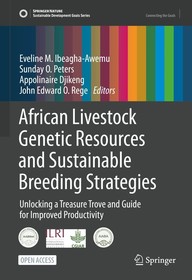
Medical Assistance in Dying (MAID) in Canada
Key Multidisciplinary Perspectives
Series: The International Library of Bioethics; 104;
- Publisher's listprice EUR 149.79
-
62 125 Ft (59 167 Ft + 5% VAT)
The price is estimated because at the time of ordering we do not know what conversion rates will apply to HUF / product currency when the book arrives. In case HUF is weaker, the price increases slightly, in case HUF is stronger, the price goes lower slightly.
- Discount 20% (cc. 12 425 Ft off)
- Discounted price 49 700 Ft (47 334 Ft + 5% VAT)
Subcribe now and take benefit of a favourable price.
Subscribe
62 125 Ft

Availability
printed on demand
Why don't you give exact delivery time?
Delivery time is estimated on our previous experiences. We give estimations only, because we order from outside Hungary, and the delivery time mainly depends on how quickly the publisher supplies the book. Faster or slower deliveries both happen, but we do our best to supply as quickly as possible.
Product details:
- Edition number 2023
- Publisher Springer International Publishing
- Date of Publication 26 July 2023
- Number of Volumes 1 pieces, Book
- ISBN 9783031300011
- Binding Hardback
- No. of pages515 pages
- Size 235x155 mm
- Weight 963 g
- Language English
- Illustrations XIX, 515 p. 10 illus., 6 illus. in color. Illustrations, black & white 482
Categories
Long description:
This book, written both for a Canadian and an international readership, provides a multidisciplinary review of the framework and performance of the Canadian Medical Assistance in Dying (MAID) program. In the first five years (2015-2021) of operation, this program delivered voluntary euthanasia and assistance in suicide to over 30,000 Canadian residents, presently representing a 30% annual growth. Looking back on these first five years, the 30 Canadian scholars and clinicians contributing to this volume raise important issues and attempt to answer key questions that have arisen in regards to its operation and its stated objectives. This volume strikes the most appropriate balance between the autonomy of persons who seek medical assistance, versus the interests and protection of vulnerable persons. Finally, the book makes suggestions on how the program can presently be improved. It identifies gaps in knowledge about MAID’s operational program and its impact on individuals, families and society in order to stimulate the necessary research that is essential to the evolution of a healthy and well-balanced program. As a first, comprehensive examination of medically assisted deaths in Canada, this publication will be of great value to lay, professional, academic, political audiences both domestically and internationally, especially in jurisdictions that are examining their options of permitting assisted deaths.
MoreTable of Contents:
Part 1: MAID in Law and Regulations.- Chapter 1. Radical Autonomy in Supreme Court of Canada Jurisprudence (Dylan McGuinty).- Chapter 2. Carter v Canada: Exploring the Ebb and Flow of “Competing” Societal Values (Mary J Shariff).- Chapter 3. From a Court Judgment to Federal Law (Travis Dumsday).- Chapter 4. “We Should Not Lightly Assume”: A Review of Legislative, Regulatory and Jurisprudential Developments of MAID Safeguards (David W. Shannon).- Chapter 5. F“Reasonably Foreseeable Natural Death” Requirement in Bill C-7, and Expressivist Harm (Jonas-Sébastien Beaudry).- Part 2: Operational Issues in the MAID program.- Chapter 6. Medical Assistance in Dying Step-by-Step: Processes and Challenges (Alireza Bagheri).- Chapter 7. Monitoring of MAID: Deficits of Transparency and Accountability (Jaro Kotalik).- Chapter 8. CFederal Annual Reports on MAID: Informative but Incomplete Picture (JaroKotalik).- Chapter 9. Organ Donation after Medical Assistance in Dying (Ryan Tonkens).- Chapter 10. Medical Practice in Presence of MAID (Amy Hendricks).- Part 3: Palliative Care and MAID.- Chapter 11. Palliative Care: Captive and Casualty of Carter v Canada? (Mary J Shariff).- Chapter 12. Palliative Care and Medical Assistance in Dying (Leonie Herx).- Chapter 13. Suffering as a Criterion for Medical Assistance in Dying (John F. Scott).- Chapter 14. The Assessment and Relief of Suffering in the Shadow of MAID (John F. Scott).- Part 4:Mental Disorders and MAID.- Chapter 15. Medical Assistance in Dying (MAID) and Suicide: A community perspective (Mara Grunau).- Chapter 16. Unbalanced: Mental Illness, MAID, and Medico-Legal Principles (David W. Shannon).- Chapter 17. MAID for Persons with Mental Illness as a Sole Eligibility Criterion (Sephora Tang).- Chapter 18. MAID for MentalIllness: What Exactly is Being Consented To? (John Maher).- Part 5: Disability Perspectives, Human Rights and MAID.- Chapter 19. MAID to Die by Medical and Systemic Ableism (Heidi Janz).- Chapter 20. Assisted Life Before Assisted Death: Disability Discomfort Regarding MAID (Tim Stainton).- Chapter 21. Implementing Medical Assistance in Dying in Canada: Implications for people with intellectual and developmental disabilities (William F. Sullivan).- Chapter 22. The Psychosocial Aspects of Adapting to Traumatic Non-Life-Threatening Disability (Irmo Marini).- Chapter 23. Canada’s Medical Assistance in Dying Law and the Rights to Life and Equality at International Law (Roberto Lattanzio).- Part 6: Social and Cultural Issues of the MAID Programme.- Chapter 24. Examining Indigenous Perspectives on Medical Assistance in Dying (MAID) (Dwight Newman).- Chapter 25. Patient Physician Relationship and MAID: Trust and Autonomy (Louisa Pedri).- Chapter 26. The Importance of Conscience as an Independent Freedom (Derek Ross).- Chapter 27. Freedom of Conscience and Medical Assistance in Dying – Clinical Perspective (Simon Czajkowski).- Chapter 28. Spirit at the Gateway: Religious Reflections on Medical Assistance in Dying (Christine Jamieson).- Chapter 29. MAID Practice and Impact (Jaro Kotalik).- Chapter 30. MAID: Pasts, Present and Futures (Tom Koch).- Part 7: Overview and Conclusions.- Chapter 31. Overview and Conclusions.


The Weyward Sisters: Shakespeare and Feminist Politics
19 110 HUF
17 199 HUF











